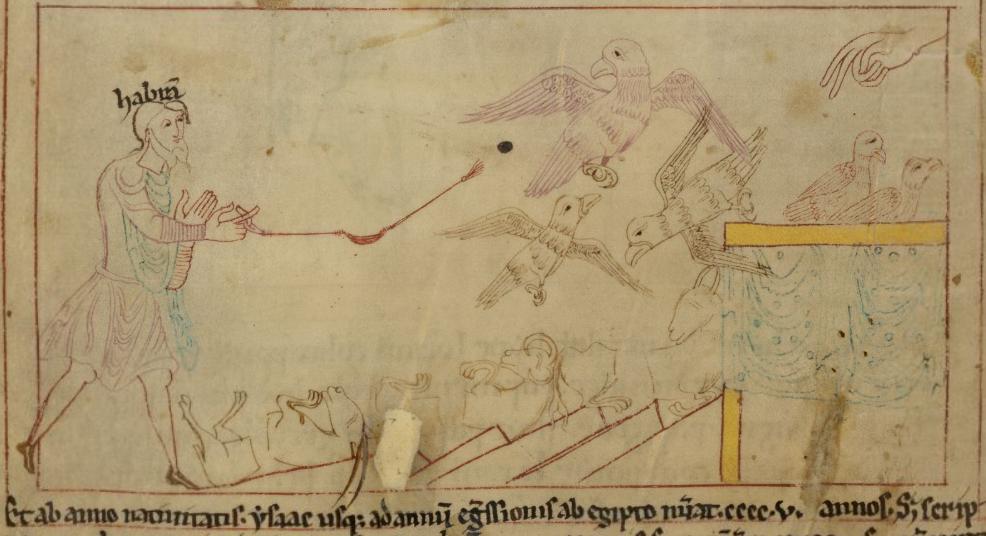
Try Amazon Audible Premium Plus and Get Up to Two Free Audiobooks
folio 26v
God's Covenant with Abram
British Library, MS Cotton Claudius B IV
Hexateuch
An Old English translation of the first six books of the Old Testament

Previous Next


15 After these things the word of the Lord came to Abram in a vision, “Do not be afraid, Abram, I am your shield; your reward shall be very great.” 2 But Abram said, “O Lord God, what will you give me, for I continue childless, and the heir of my house is Eliezer of Damascus?” 3 And Abram said, “You have given me no offspring, and so a slave born in my house is to be my heir.” 4 But the word of the Lord came to him, “This man shall not be your heir; no one but your very own issue shall be your heir.” 5 He brought him outside and said, “Look toward heaven and count the stars, if you are able to count them.” Then he said to him, “So shall your descendants be.” 6 And he believed the Lord; and the Lord reckoned it to him as righteousness.7 Then he said to him, “I am the Lord who brought you from Ur of the Chaldeans, to give you this land to possess.” 8 But he said, “O Lord God, how am I to know that I shall possess it?” 9 He said to him, “Bring me a heifer three years old, a female goat three years old, a ram three years old, a turtledove, and a young pigeon.” 10 He brought him all these and cut them in two, laying each half over against the other; but he did not cut the birds in two. 11 And when birds of prey came down on the carcasses, Abram drove them away. (Genesis 15)
Date: 2nd quarter of the 11th century-2nd half of the 12th century
Title: Old English Hexateuch (imperfect), comprising Ælfric’s preface (1r–v), Genesis (1v–72v), Exodus (72v–105v), Leviticus (105v–110v), Numbers (111r–128r), Deuteronomy (128v–140r) and Joshua (140v–156v)
Claudius B.iv. was probably compiled in the second quarter of the 11th century at St Augustine's Abbey, Canterbury. It incorporates translations and a preface by Ælfric of Eynsham, while the remaining parts of the translation were carried out by anonymous authors. Peter Clemoes suggests that Byrhtferth of Ramsey was responsible for the compilation as well as for parts of the translation.
The picture captions are in Anglo-Norman French.